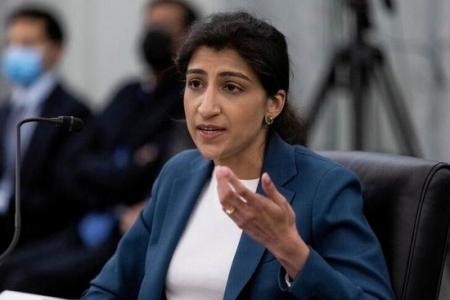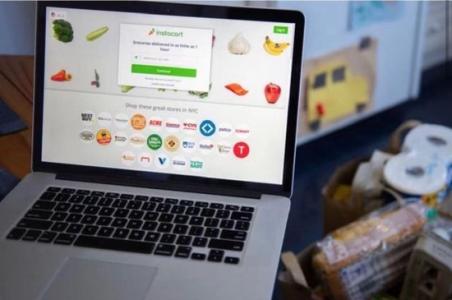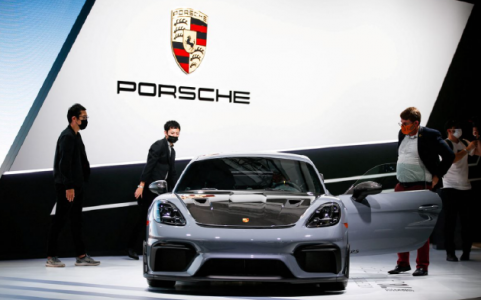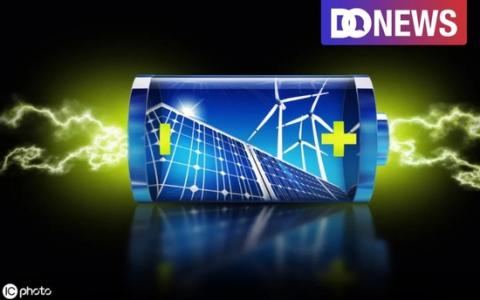your current location is:Home > Finance > depthHomedepth
Musk's acquisition of Twitter, a "farce"
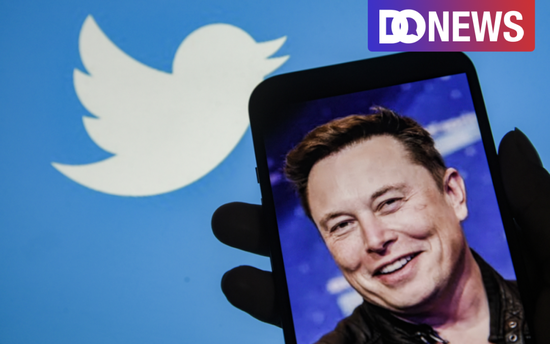 Title image | IC Photo
Title image | IC Photo On the evening of August 30, a Twitter filing with the U.S. Securities and Exchange Commission showed that Musk’s advisers sent a letter to Twitter formally notifying the termination of the previously agreed acquisition agreement between the two parties. Twitter said the termination letter from Musk was invalid and erroneous.
On the same day, Musk’s attorney said in a letter to Twitter’s lead lawyer that Musk’s termination of the acquisition was due to Twitter’s “serious violations of multiple terms in the original agreement,” including “false and misleading”. Statements” and “Failure to Comply with Talent Management Obligations”.
But Twitter said: "It has not violated any statement or obligation under the agreement." Twitter will plan to continue to implement the agreement and complete the transaction at the price and terms previously agreed with Musk. The company has not been accepted and is unlikely to be be significantly adversely affected.
In fact, affected by this news, Twitter’s stock price has been falling all the way. As of August 31, it has fallen by 2.81%, and its market value has fallen below the $30 billion mark, only $29.653 billion. It is not only Twitter that has been adversely affected, but Tesla’s stock price has also continued to fall. Since the announcement of the news, as of August 31, it has fallen by 4.45%, and its market value has evaporated by $38.416 billion.
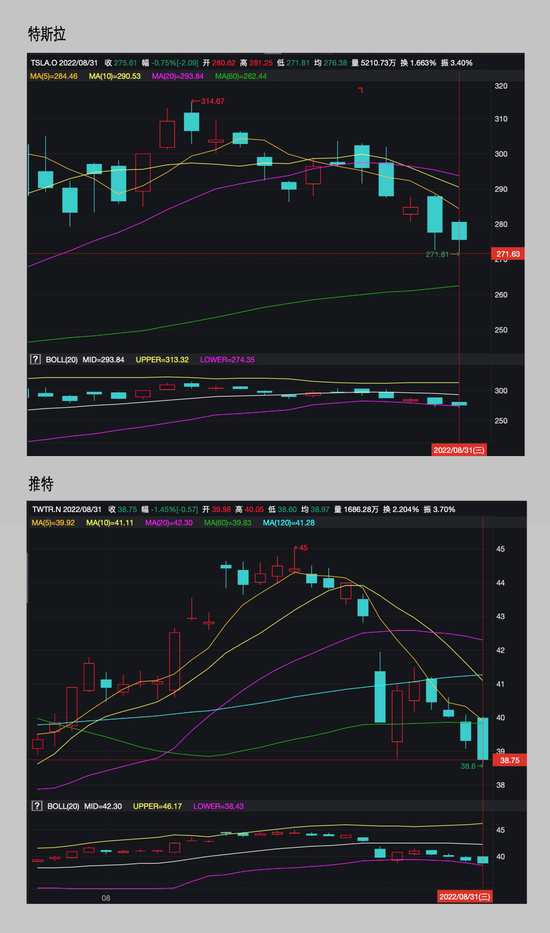 Twitter and Tesla's stock price trend chart Image source: Wind
Twitter and Tesla's stock price trend chart Image source: Wind01.
Why did Musk stop the acquisition?
Maybe Musk didn't figure out whether to buy Twitter in the first place.
On April 4, documents disclosed by the U.S. Securities and Exchange Commission showed that Tesla CEO Elon Musk held a 9.2% stake in Twitter. As soon as the news came out, everyone was surprised, because according to public information at the end of 2021, Twitter's single largest shareholder, VANGUARD GROUP INC, held only 8.8% of the shares. This means that Musk has become the single largest shareholder of Twitter.
Twitter immediately named Musk to the board, but a week later Musk said he was reluctant to join. Later, a Twitter shareholder sued Musk for "delayed disclosure of shares and artificially low stock prices." Facing the pressure of being sued, Musk said in a filing to the stock exchange that he intends to buy Twitter for $41.39 billion in cash, at a price of $54.20 per share, more than Twitter’s April 1 bid. It closed 38% higher.
The proposed acquisition of Twitter was "sudden", and just after being sued, people can't help but wonder about the true intentions of the acquisition. Regarding the specific plans after the acquisition of Twitter, Musk did not make a specific statement, but said: "I invested in Twitter because I believe it has the potential to become a platform for free speech around the world, and I believe that freedom of speech is a normal democracy. Socially necessary, Twitter needs to transform as a private company."
For free speech, it can also be understood as "the reason for the acquisition is not specific enough". On April 15, in a TED talk show with Musk, when asked why he wanted to acquire Twitter, Musk subconsciously replied: "I don't Know." After being silent for a while, it started off and on. The reason for the acquisition was explained in a straightforward manner, which lasted for a few minutes, and even mentioned that "human civilization has been threatened" and so on.
In addition, similar to the acquisition of Twitter, Musk has also threatened to acquire Coca-Cola and McDonald's. On April 28, Musk tweeted, "Next I'm going to buy Coca-Cola and put cocaine back in." Earlier, he also posted: "I'm going to buy McDonald's and improve their ice cream machine. a bit."
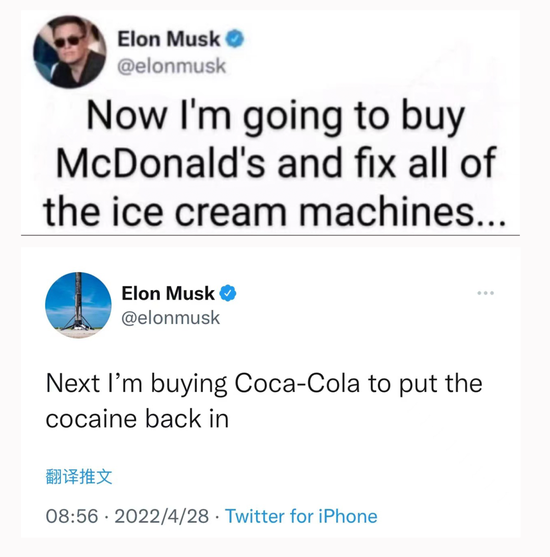 Musk tweets to buy Coca-Cola and McDonald's Image credit: Twitter
Musk tweets to buy Coca-Cola and McDonald's Image credit: TwitterBut it turns out that this is just a joke made by Musk. After all, Coca-Cola has a market value of $268.873 billion, and McDonald's has a market value of $186.573 billion.
Is the reason for acquiring Twitter just a joke? Nobody knows.
However, the reasons given by Musk to terminate the acquisition of Twitter are very clear. For example, the first major core reason is "spam and fake account problem". On May 13, Musk tweeted that the Twitter acquisition deal will be put on hold as detailed results are being calculated on "whether spam or fake accounts account for less than 5% of users." On June 6, Musk’s legal team publicly stated in a letter to Twitter that Twitter’s refusal to provide all the junk account data Musk requested was a “serious breach” of the acquisition agreement, and Musk therefore had the right to terminate the acquisition.
Under pressure, Twitter decided to give Musk access to the full "Firehose" database, a stream of more than 500 million tweets posted daily. While checking, Musk said that the data released by Twitter that the proportion of spam accounts accounted for less than 5% is not credible at all, and the real number should be about 4 times.
However, after calculation, Musk did not disclose the specific proportion, but emphasized that the proportion of the number of spam and fake accounts on Twitter is much higher than the 5% claimed by Twitter. On July 8, Musk said he would terminate the acquisition of Twitter, accusing Twitter of serious violations of several terms of the agreement.
One of those terms is "complying with talent management obligations," which Musk said also influenced his acquisition of Twitter. When signing the agreement to buy Twitter for $44 billion, Musk had asked Twitter to basically keep its current business organization intact, and if it wants to change its normal business processes, it must get Musk's consent.
However, according to foreign media reports, Twitter executives said at an internal meeting that more and more employees within the company have chosen to leave, and the employee turnover rate has reached 18.3%, while the previous employee turnover rate was only about 15%. remain on par with competitors. Musk expressed dissatisfaction with this: "Twitter's recent personnel changes have been too large, and some senior executives and one-third of the talent recruitment team have left, violating the obligations of the previous acquisition agreement and causing damage to the company's value."
In addition, "privacy and security" is also an issue that Musk constantly emphasizes. At this point, Musk has outside help. On August 23, many media in the United States broke out that Twitter's former security director Pete Zatko reported to the official real name as a "whistleblower", saying that Twitter has reported to regulators on cybersecurity issues. Lying and knowingly ignoring fake accounts. It also accused Twitter of violating the terms of a 2011 FTC settlement by falsely claiming it had taken stronger steps to protect the security and privacy of its users.
When Musk heard the news, he immediately issued a subpoena to the executive. In a termination letter sent to Twitter on Aug. 30, Musk stressed that Twitter had "serious deficiencies" in defenses against hackers and privacy concerns, and "serious violations" of its obligations under data privacy and consumer protection laws, It also violated the conditions in the merger agreement, etc.
Musk made a lot of reasons, but in a nutshell - Twitter didn't stick to the deal, I'm not buying it.
02.
Twitter: From refusal to welcome, to entanglement
After receiving the letter sent by Musk, Twitter responded immediately: "This letter is invalid." The outside world was puzzled by this, which was completely different from Twitter's initial "unwilling to be acquired" attitude.
In order to initially block the acquisition, Twitter reached a self-protection plan by inviting Musk to the board of directors and limiting his shareholding to no more than 15%. When the plan failed, Twitter came up with the proposal of the "poison pill plan", by issuing a large number of new shares at a low price, so that the proportion of shares in the acquirer's hands was reduced and the acquisition cost was increased, so as to achieve the effect of being unable to be acquired.
In other words, would rather put up with a diluted stake than have Musk buy Twitter. But what is unexpected is that it took only 11 days from Musk’s offer to Twitter on April 14 to Twitter’s acceptance of the $44 billion acquisition agreement on April 25. During this period, Twitter's attitude changed 180 degrees from rejection to acceptance.
However, the pull of the "Twitter acquisition" has just begun. Twitter has been proposing that it hopes to complete the transaction as soon as possible, and even in its appeal to Musk, it has also filed an application, hoping that the court can directly conduct a trial for four consecutive days, and in the A ruling on the case was completed in September. But Musk has been investigating the evidence and has delayed the trial, even hoping to announce the outcome of the trial by February 2023.
Why is Twitter panicking? This is related to changes in its share price.
When Musk offered to buy Twitter, Twitter was at the height of its share price rally, reaching a high of $54.78 on April 5. According to Twitter’s financial report data for the first quarter of 2022, quarterly revenue reached $1.201 billion, a year-on-year increase of 15.92%, and net profit reached $530 million, a year-on-year increase of 654.78%.
However, the recently released financial report data for the second quarter of 2022 showed that Twitter’s revenue was only US$1.177 billion, a year-on-year decrease of 1.16%, and its net profit was a loss of US$270 million, a year-on-year decrease of 511.29%. As of August 31, Twitter’s stock price has also dropped 39.74% from its previous high, and its market value has almost halved.
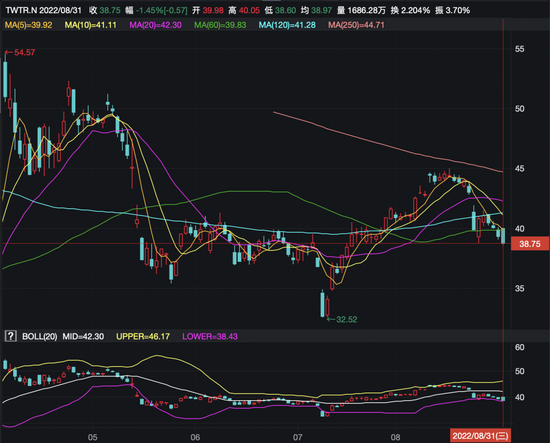 Twitter stock price trend chart Image source: Wind
Twitter stock price trend chart Image source: WindThe general environment in the United States has also weighed on Twitter. Except for Twitter, the performance of US technology stocks is not satisfactory, especially the digital advertising business. Take Twitter for example, in the first quarter of 2022, Twitter's digital advertising business increased by 18.93% year-on-year, and in the second quarter of 2022, the year-on-year growth rate dropped to 6.11%. Other online advertising companies such as Alphabet, Meta Platform, Snap and Pinterest have seen revenue declines to varying degrees, and their stock prices have plummeted by an average of about 40%.
This has Twitter worried that if the deal is delayed, it will be in trouble. But according to foreign media reports, Musk is obviously not willing to suffer this loss at this time.
It has also been speculated before that the flow of cash dividends is the main interest demand behind Musk's acquisition of Twitter.
Tesla recently released its financial report for the second quarter of 2022. According to the data, Tesla sold 254,695 vehicles in the second quarter, a year-on-year increase of 27%. "Automotive Industry Report" shows that the global sales of new energy vehicles increased by 61% year-on-year, and domestic BYD's sales in the second quarter reached 354,000 vehicles, a year-on-year increase of 266%. In contrast, Tesla's sales performance is not very good.
In terms of marketing expenses, Tesla’s marketing and general administrative expenses in 2021 are as high as $4.517 billion, and 10 years of expenses can buy a Twitter. Musk also said that a proportion of offline experience stores will be closed and marketing will be transferred online. After this change is implemented, Tesla will usher in new marketing and promotion needs.
Twitter has 200 million monthly active users, and Musk has 80 million followers on Twitter. After acquiring Twitter, he can achieve the marketing effect of Tesla and other products through the Twitter social platform, but obviously the performance of Twitter has made Musk. Adjusted my expectations.
At present, there are too many fake accounts on Twitter, the revenue performance is not as good as expected, the market value is also falling sharply, and there are certain privacy and security risks, which may make Musk feel that it is not worthwhile to spend $44 billion to acquire Twitter. But Twitter said that it is very confident in the future court judgment and will make every effort to facilitate the execution of the acquisition.
Daniel Ives, an analyst at Wedbush Securities in the United States, believes that there are three possible outcomes for Musk's acquisition of Twitter: the transaction fails; Musk lowers the purchase price; Musk withdraws from the transaction and pays a "breakup fee" of $1 billion.
The "Twitter takeover" will be adjudicated in the US state of Delaware, and the outcome of the trial will be announced in October. But no matter what the outcome of the trial is, looking at it now, this farce of "chaos and abandon" has caused a lot of losses to both parties.
Previous:Android lost too much, iPhone won more than half of the market share for the first time!
Next:iPhone 14 "reduces and does not increase prices", Apple is too shrewd
related articles
Article Comments (0)
- This article has not received comments yet, hurry up and grab the first frame~






